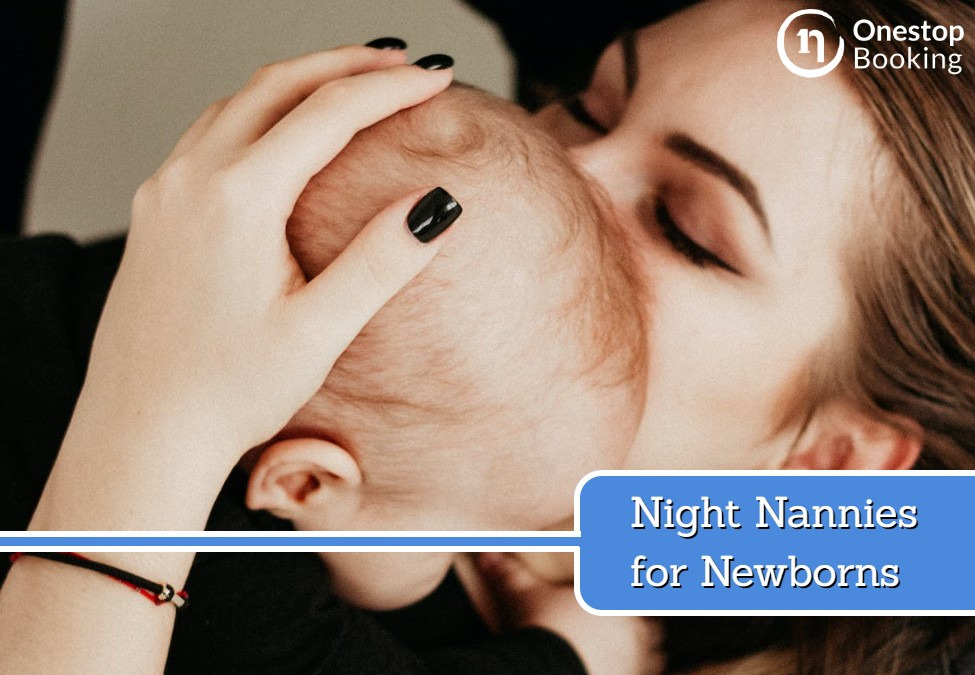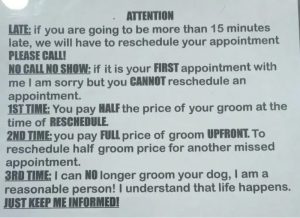Are you a new parent struggling with post-natal depression and lack of sleep? Hiring a night nanny for your newborn baby can give you the peace of mind to enjoy a good night’s sleep, knowing that a professional, qualified, and trustworthy midwife is taking good care of your little one. Night nannies for newborns are knowledgeable and have many year’s experience to educate and support you as you navigate parenthood challenges. Here are various things you should know before hiring a night.
What is a Night Nannies for Newborns?
A night nanny, often known as a childcare professional, helps families during their initial months or weeks postpartum. Often, they are women with many years of experience with newborn babies or experts such as maternity nurses and doulas. They are employed to either work part-time or full-time to take care of a single baby during night-time hours, alleviating the postpartum load for the new mom.
While a night nanny usually cares for newborn babies, they may also tend to older children whenever necessary. They assist parents with nappy changing, bottle feeding, bathing, and lulling the baby to sleep. Night nannies can also establish proper feeding and sleeping habits in an infant.
What Exactly Does a Night Nanny do?
Night nannies play various roles, such as:
· Changing Nappies
Apart from preparing and sterilising the baby’s sleeping area, they also take care of all toiletry tasks, such as nappy changing. While changing nappies, the nanny may also need to apply powder or creams to prevent nappy rash. Further, they lull the baby back to sleep, dispose of soiled diapers, and wash dirty beddings and baby clothing.
· Feeding
A night nanny helps with night feeds as the mom sleeps. They may either warm expressed breast milk or prepare formula for the baby. They ensure the infant gets the right formula based on their parent’s preferences. Sometimes they help breastfeeding mothers, offering encouragement and gentle support and carrying the baby to the bedroom for feeding. The nanny returns the baby to their bed, ensuring the mom doesn’t leave her bed after breastfeeding the baby.
· Obtaining Supplies
A night nanny may be tasked with purchasing additional baby supplies on behalf of the new mom. These supplies include diapers, formula, and warm clothes. Sometimes the nanny may also need to go grocery shopping, allowing the first-time parents to focus on caring for their infant during the day.
· Communicating with the New Parents
A night nanny holds conversations with the baby’s parents to understand the infant’s needs and report any changes. For instance, suppose the baby develops a fever. The baby alerts the parents so they can visit a physician. Proper communication between nannies and parents allows both parties to understand the baby’s needs and beware of any occurring changes.
· Nurturing and Comforting
A night nanny ensures the newborn is comfortable throughout the night by swaddling, lulling, massaging them gently, and providing the ideal sleeping arrangement. The nanny watches the baby keenly to ensure they don’t roll over and eliminate any potentially harmful objects, such as pillows and soft blankets. They nurture the baby when restless and play the role of a guardian throughout the night.
What is the Average Cost for Night Nurses for Newborns?
A night nanny charges up to $250 for an eight to 12-hour shift. These charges may vary based on the nanny’s experience level and job location. Other factors that may influence the price include:
- Whether the nanny will be caring for a single baby or multiples
- Whether the baby has special needs
- The distance they will cover to reach their job destination
The nanny agency may charge you a service fee if you hire through an agency. Due to the high costs involved, many families consider night nannies for newborns a luxury, ideal for the rich.
How much do Night Nannies Make?

On average, night nannies make $46,781 annually in the United States. This amount translates to an hourly rate of $22.49 and approximately $899 weekly. According to ZipRecruiter, some night nannies earn up to $79,000, while others earn $18,500 annually. A significant percentage of night nanny salaries range between $37,000 and $54,000. The average pay for night nannies varies widely, meaning there are numerous opportunities for advancement and higher wages depending on the location, years of experience, and skill level.
How to Find the Best Night Nanny for you
Finding the best night nanny is crucial for your general well-being. Here are tips to help you find the ideal nanny that meets your needs.
· Research Extensively
Look for night nanny services in your area, or use Google to discover the best services around your local area. Check a potential nanny’s experience, charges, and qualifications.
· Shortlist the Best Candidates
Choose up to three most suitable candidates and schedule an interview with each. Remember, references can help you make the right decision. Ask your friends and family members to refer you to any good candidates they may have worked with before. This saves you the energy and time you’d have spent searching for the ideal candidate.
· Conduct an Interview
To choose the right candidate for your needs, you should know what to ask during the interview. Listen to their introduction and work experience keenly to determine whether they will complement your needs. If you’re working with a consultant, ensure the service provider has conducted a comprehensive DBS check on the potential candidate.
Establish the potential candidate’s previous employment and seek to understand how they will handle specific duties should you employ them. Disclose your expectations during the interview to determine whether the candidate can manage the job.
How many Hours does the Night Nanny Stay with us?
A night nanny can stay with a family for two to 12 weeks. Some stay with the family even after the new mom resumes work. Often, the duration depends on the family’s needs, but some nannies can remain until the child no longer needs assistance. Wealthy families can promote nannies who stay with them to the position of household manager. However, some employers let their nannies go after some years or when they are relocating.
How does a Professional Nanny make a Newborn Sleep Easily?
Newborn sleeping patterns can be volatile during the first few months. Usually, newborns go back to sleep every two to three hours after feeding. A professional nanny can sleep train the baby from the second month. For example, they can introduce the child to a five hours sleep routine at night. This routine should begin between 8 pm and 11 pm. While the baby will wake up now and then to feed, the sleep period gets longer.
The nanny can continue the sleeping routine in the third month by taking some time before picking them up immediately after they wake up. Ensure their sleeping area is as comfortable as possible and eliminate distractions, allowing the baby to fall asleep independently.
What are the Pros and Cons of Employing a Night Nurse vs. a Day Nurse vs. a Nanny During a New Baby’s First 6 Months
Suppose you can afford a nurse or nanny to care for your child round the clock. That would be an excellent idea. Suppose you enjoy waking up, breastfeeding your baby, and changing their diapers yourself. In this case, a day nurse or a live-in nanny would be the best option. However, managing a newborn baby as new parents can be hectic, leaving you sleep-deprived and overly exhausted, especially for moms who had a C-section. In this case, having a night nurse who can help with the baby during the night and a live-in nanny would be ideal.
Baby nurses are experienced and can help moms navigate the first challenging weeks with a newborn. They allow moms to sleep and rest, which is critical for their mental health and well-being.
Some studies suggest that chronic sleep deprivation may increase a mother’s postpartum depression risk, inhibiting their ability to bond with their children. Night nannies for newborns can teach new parents how to manage their babies easily, especially if they live far from their close family members. Some parents hire night nurses and live in nannies so they can reserve some energy to care for the older children.
Parents of multiples or those with children needing specialized newborn care would benefit from having both a night nurse and a nanny. While some families appreciate having a night or day nurse, they can be costly. Some families also prefer help from close family members during their first few months of parenthood instead of hiring a nanny or night nurse. Still, night nurses come in handy whenever necessary.
How Long Should a Newborn Sleep at Night?

Usually, newborns sleep around eight to nine hours during the day and approximately eight hours at night. However, they only sleep up to one or two hours at a time. Many newborns start sleeping without waking when they are around three months old.
How to Become a Night Nanny
Some countries have no requirements or regulations to become a night nanny. To assist nannies and parents, nanny associations in different countries have standards that explain the skills required to be a nanny. They also provide credential programs that require work experience and training.
Nanny certification and training show a commitment while making a candidate stand out when applying for jobs. Various organizations, online resources, and training programs support career advancement. Aspiring nannies can register for additional courses to advance their knowledge and qualify for advanced nanny and babysitter positions.
Experienced and trained sitters and nannies earn more than their untrained counterparts. Many parents say they are willing to pay a higher wage for nannies with other experience, skills, and training. Nannies with at least one year of work experience and 20 hours of training can become certified. First aid and CPR training are the most critical certifications for a childcare job. Many families consider these certifications before choosing a potential candidate.
Potential nannies can enrol for first aid and CPR training at online or local community colleges. An infant CPR course would be ideal for nannies working with young children or newborns. Nannies also take safety or childcare courses. A nanny basic childcare training program, should include emergency planning, managing children of different ages, safety, and legal requirements when working in the childcare industry.
Nannies should also learn crucial stress management and positive discipline skills to help them correct undesired behavior. Safety courses include water or lifeguard safety and passenger seat safety.
Conclusion
While every family’s needs differ, hiring a night nurse can be ideal for new parents. Apart from having the necessary training, night nurses are experienced enough to help parents navigate the challenges of new parenthood.
A nurse can also recommend the right solution to help relieve newborns’ colic, milk intolerance, feeding complications, and acid reflux. They are also loving and compassionate. Parents are highly likely to have a positive experience rather than a negative one. The advantages of hiring a night nurse or live-in nanny outweigh the expenses.
A professional nurse takes away the load of waking up during the night to feed and change the baby. As a new parent, getting some help in the first few weeks postpartum helps you rest and sleep well, eliminating the risk of postpartum-related complications.
Are you considering hiring a night nanny? Use the tips in this article to make an informed decision. Check out our website for more insights to help you understand why you should hire a night nanny to help you with your newborn.
Image Credit:
- Image by Freepik
- Image by v.ivash on Freepik
















